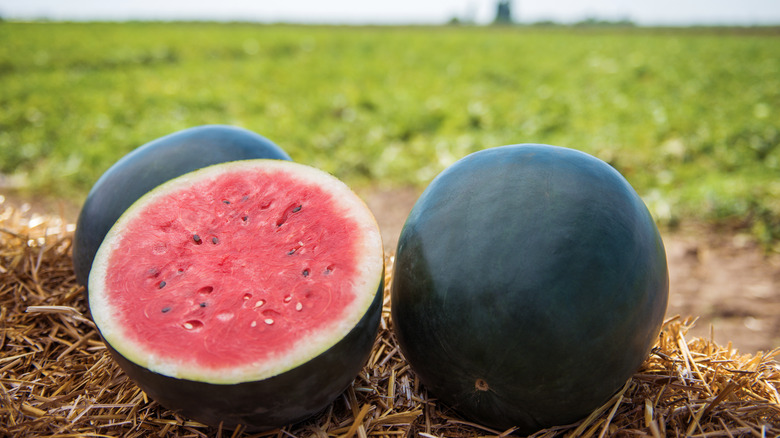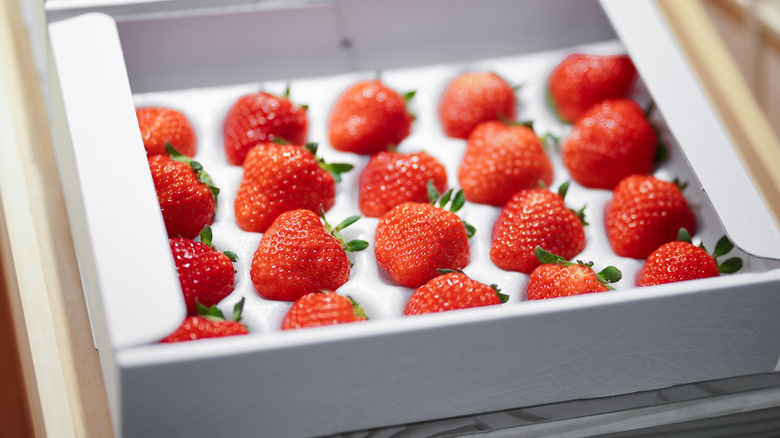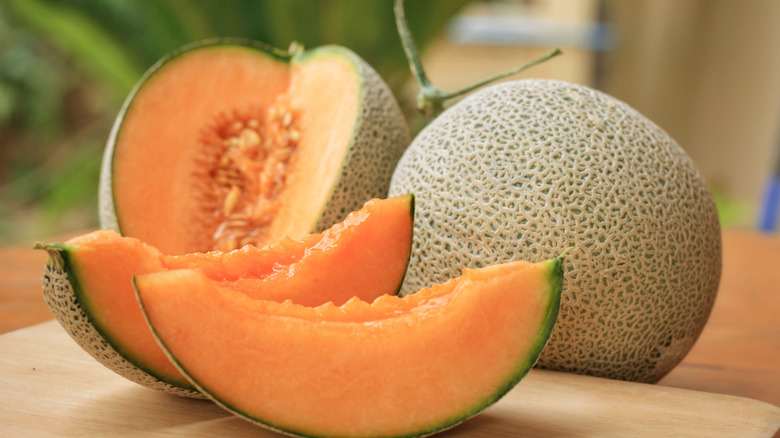The Most Expensive Watermelon In The World Is Worth Over $6000
How much are you willing to pay for a good snack? Ten dollars? Twenty? In some corners of the world, these bids won't even get you in the room to consider making a purchase.
In Japan, where fruits can be a delicacy reserved for special occasions, the nicest fruits are sold at auction for high prices, like the black jumbo watermelon that was sold in 2009 for a record $6100. The black jumbo watermelon is also known as a Densuke watermelon and is only grown on Hokkaido in small batches, elevating the prices for the fruit because they're in low supply.
Other melons have also reached eye-popping sale prices at auction. In 2019, two Yubari melons sold for $45,600 to Pokka Sapporo Food & Beverage Ltd., which sells Yubari-flavored soda. That price has yet to be matched, but as recently as May 2023, another pair of Yubari melons sold for $25,000 to Hokuyupack Co.
Fruit in Japanese culture
Although the record-breaking figures at the top of the auction market do not reflect the prices regular consumers pay for everyday melons or other fruit in Japan, fruit does cost more in Japan than in the U.S. While Japanese fruit is known for its exceptional quality and care in growing, the price difference also comes from fruit's important role in Japanese gift-giving culture.
The practice of giving fruit traces back to Shinto and Buddhist offerings, where fruit was a common offering at altars. Nowadays, seasonal fruits are a common gift during each of the two traditional gift-giving periods in Japanese culture: summer and December. Though these traditions may be fading, there's an uptrend in giving gifts for birthdays and at Christmas, where fruits are also a popular present.
This interest in fruit drives up the price of regular fruit just like high-end fruit. It is not unheard of for a single apple to sell for $25 at a grocery store. At the famous fruit store Senbikiya in Tokyo, a box of Queen Strawberries has sold for $85!
The decor at Senbikiya and other fruit stores is sleek and polished — similar to jewelry stores in the U.S. — and this is meant to showcase the fruit's high value.
Farming precious fruit
In addition to the strong demand for fruit in Japan, there's also the matter of high-quality production that drives up the cost of fruit. For many Japanese fruits, like the Yubari King melons and Miyazaki mangoes — the most expensive mangoes in the world — farmers tend to each individual fruit by hand. Crown muskmelons, grown in Shizuoka, are reportedly even given caps on especially hot days to protect them from the sun.
The towns that farm and sell these fruits also view the produce as a point of local pride. When the two Yubari melons sold in 2019 for $45,600, Yubari Mayor Tsukasa Atsuya was in attendance for the auction and told the Asahi Shimbun that the sale showed a "high evaluation of Yubari farmers. We want to protect the melon as our city's asset to revitalize the city."
For Japanese customers, farmers, and shopkeepers alike, there is a deep appreciation for fruit quality. $6,000 might sound like a lot for one melon, but when you see it in its context, it makes you think: "How amazing must that melon have been!"


